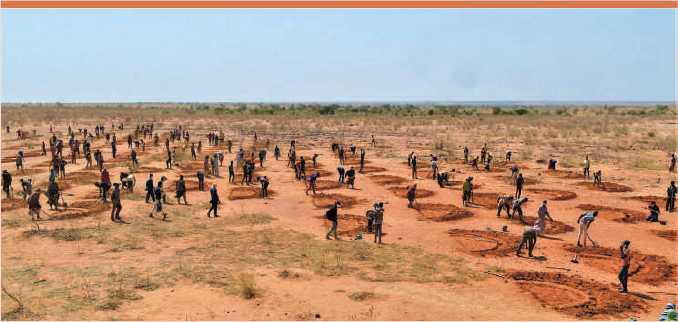Arrivée et accueil par les communautés sur le site du bootcamp à Diandoly/Sénégal
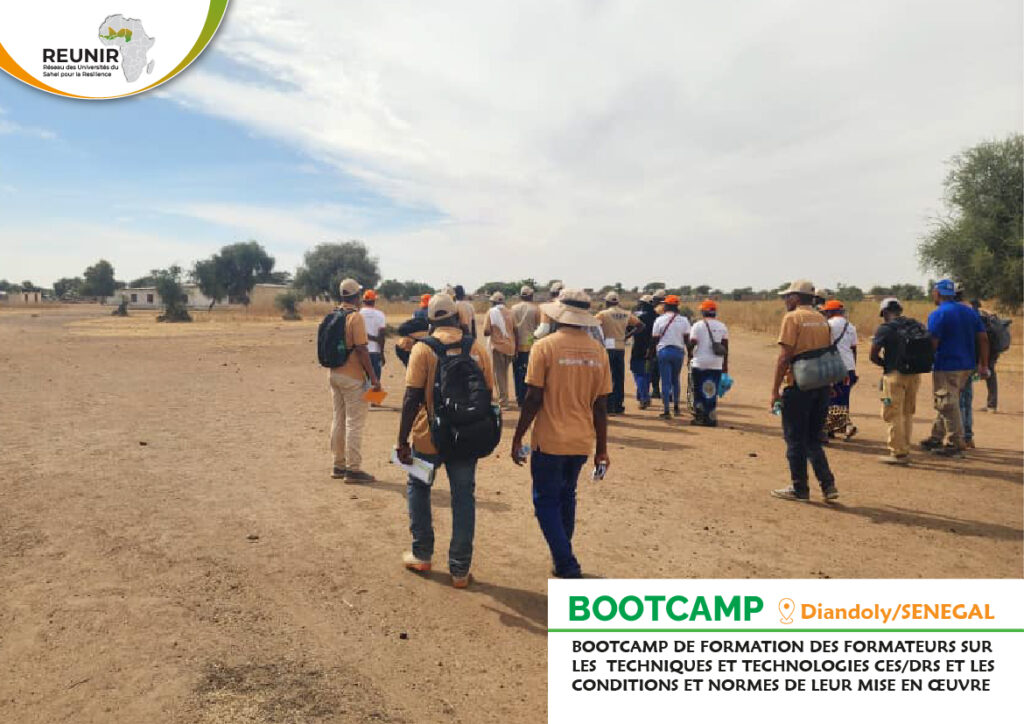
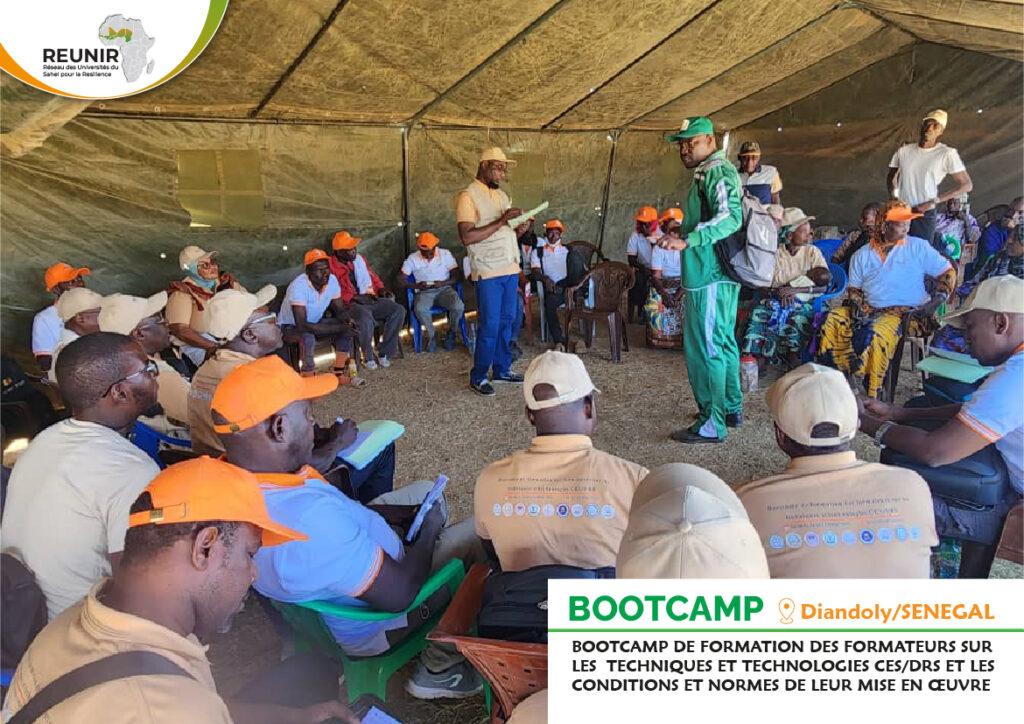
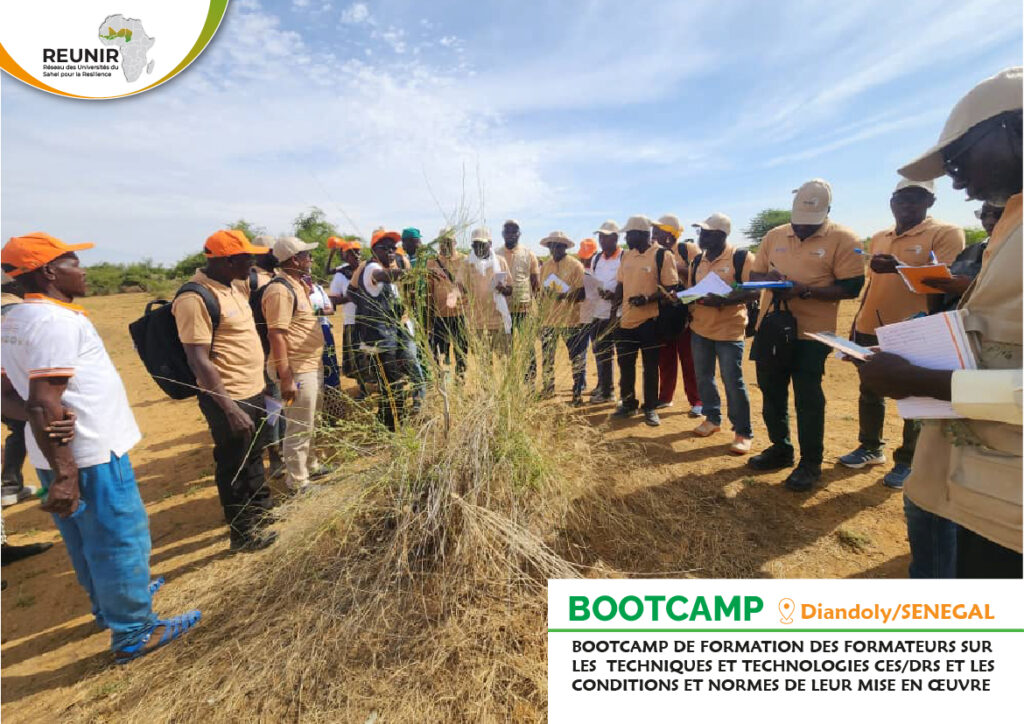
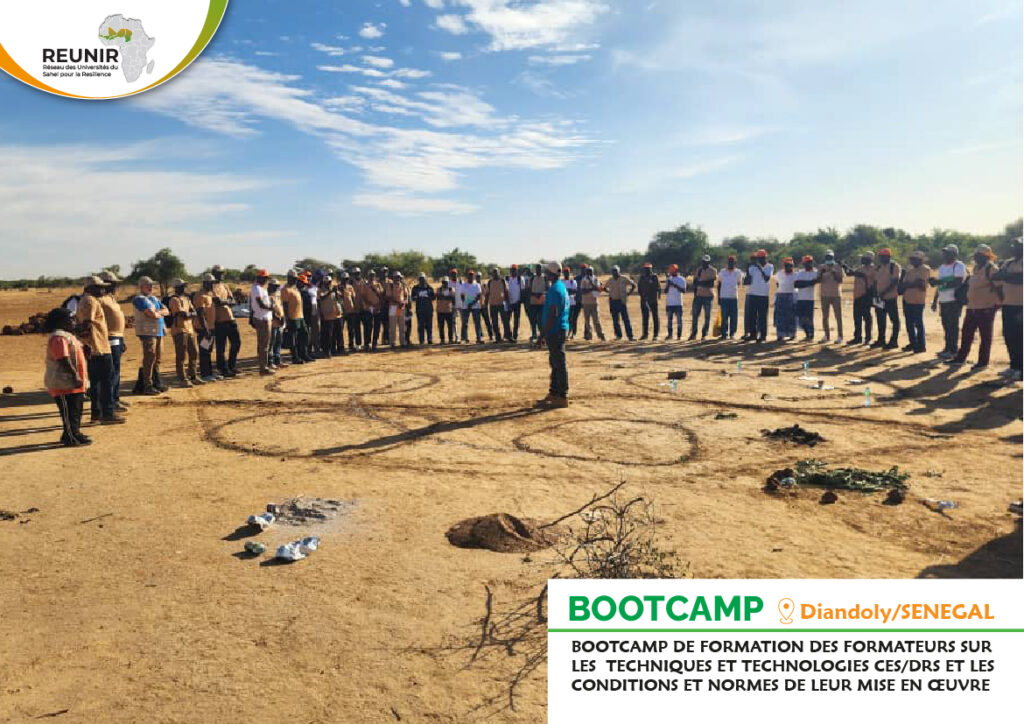
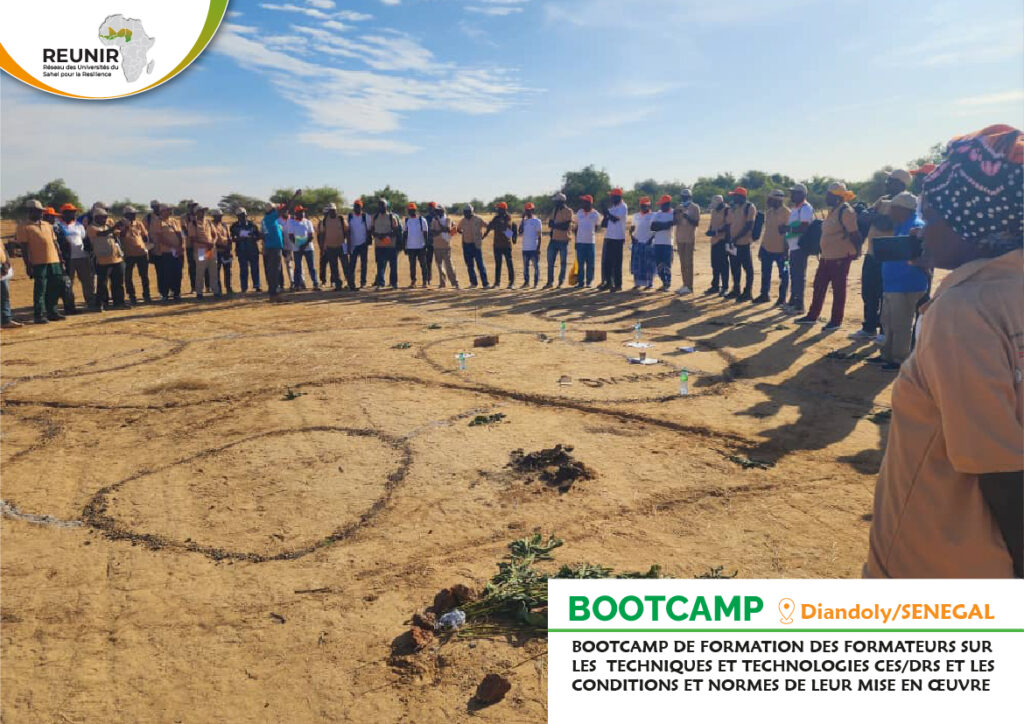
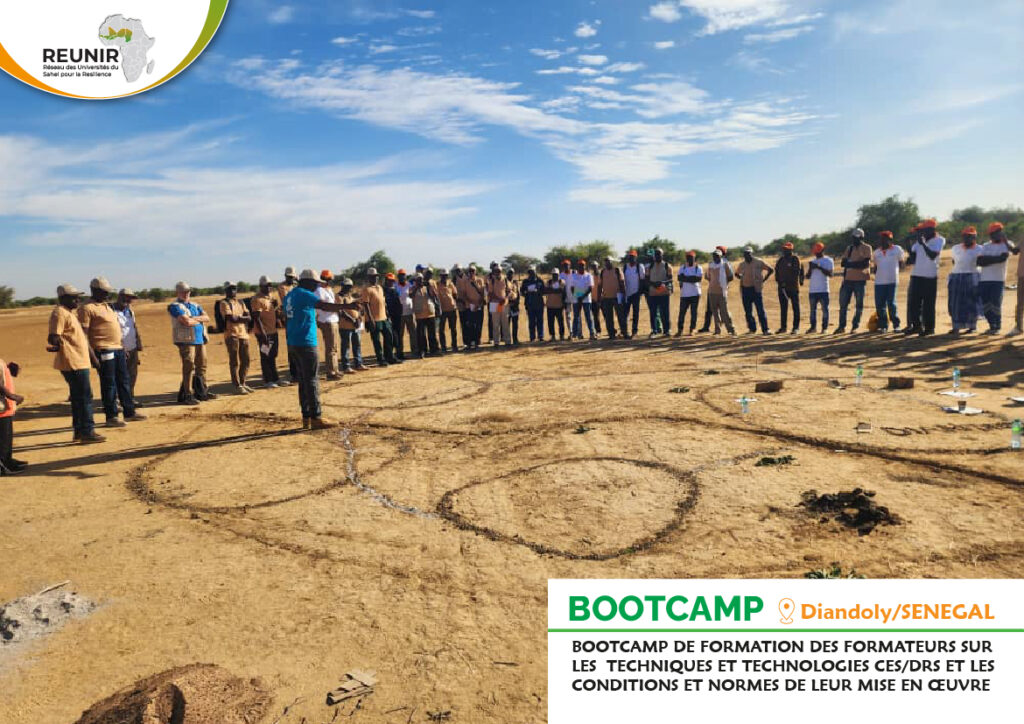
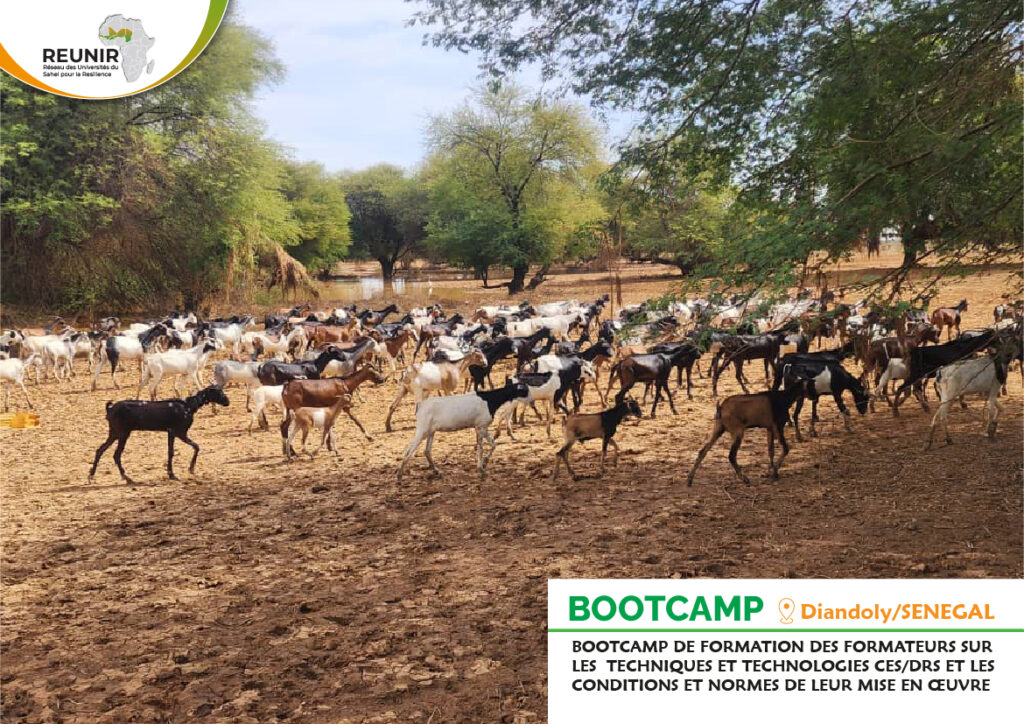
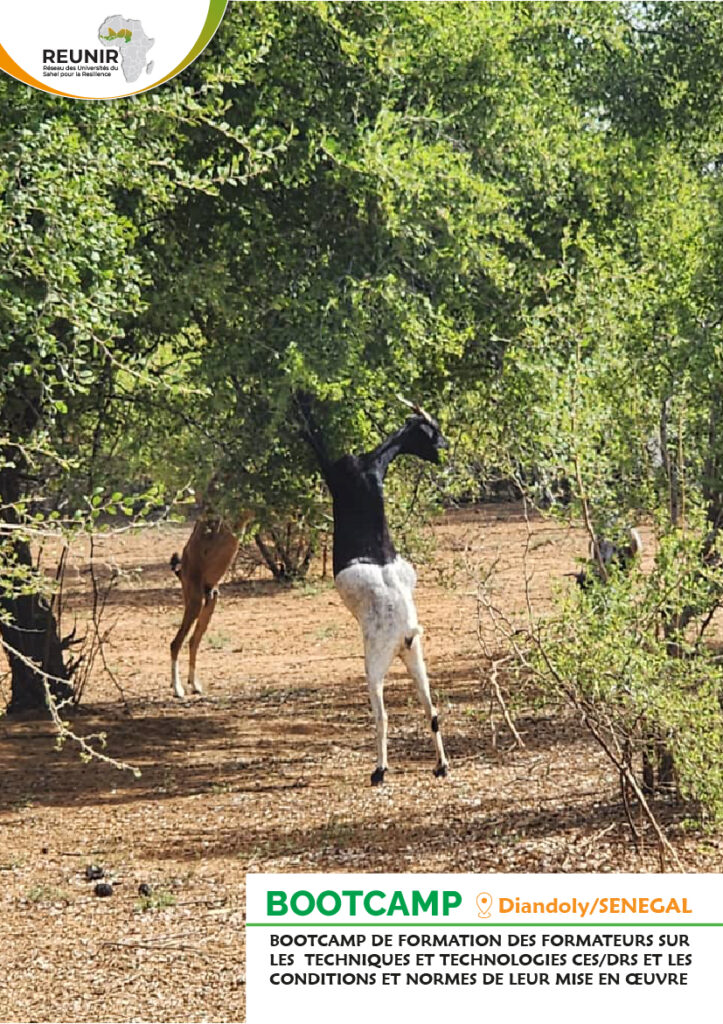








Among the contexts most vulnerable to climate change, the Sahel is affected by high and persistent levels of poverty. In Niger and Burkina Faso, decades of investment by governments, the private sector, local organizations and international actors to address structural development challenges show that progress can be made, but millions of people are still affected by food crises, conflicts and recurring shocks, often in the same geographic pockets. Insufficient coordination between initiatives and contradictory approaches between development and humanitarian actors have made it impossible to leverage investments in a way that strengthens learning capacities at the local level, expands and sustains results. Growing regional terrorism, intensified by climatic and environmental constraints, adds to the complexity. Achieving sustainable pathways out of poverty and reversing chronic food insecurity will require a coordinated effort to address these interrelated challenges.
USAID’s resilience programs provide a pathway to maximize development outcomes in areas affected by recurring, protracted, and chronic shocks and stresses. As mutually reinforcing multi-sectoral strategies, they highlight the need for diverse development, humanitarian and private sector stakeholders to work more closely together to achieve collective impact. There is a need to focus on aligning these investments under a shared vision and coordinated approach, with clear advocacy and communications strategies and capacities. Strengthened collaboration through joint analysis, planning and implementation – underpinned by iterative learning and frequent course correction through adaptive management – provides a compass for working together by accounting for complexity and giving life to a portfolio of mutually reinforcing impacts.
In response to this context, Mercy Corps, with its partners Equal Access International and Tulane University, designed the Sahel Collaboration and Communication (SCC) activity. SCC aims to operationalize this collaborative, complexity-aware way of working to leverage investments from RISE II, Bridge, GPCS and the complementary efforts of donors, communities, governments and the private sector, by a coherent and efficient portfolio. The objective of the SCC: Ensure collaboration, learning and communication between USAID implementing partners and stakeholders to improve development outcomes in targeted areas of the Sahel.
Outcome 3: Increased awareness of USAID contributions among key audiences Innovative Grants Program in English) of SCC aims to catalyze systems-level changes or transformational changes, aiming to establish connections between higher education researchers and USAID implementing partners to support the execution of the CSC's Common Learning Agenda. The objective of the PSI is to catalyze innovative solutions to approaches to resilience, collaboration, learning and adaptation through the engagement of multi-sectoral and interdisciplinary research teams around the learning issues of the health agenda. learning of SCC. The goal of the program is to generate and enrich the knowledge base on catalytic approaches to resilience in communities including the barriers and obstacles that communities face on the ground.
The research teams will be composed of professors and students from universities and/or local research organizations, with an emphasis on the participation of women and young people. Members of the selected research teams will also engage in some CSC activities to become familiar with resilience concepts and approaches. Teams will be encouraged to be composed of individuals from different institutions and disciplines and will include at least two paid students in each team, under the supervision of researchers. The first round of grants will be rapid grants lasting six to twelve months on research questions in Annexe 1.

The call for tenders will be published in April 2022; The technical selection committee will be composed of SCC project staff, Tulane University, and faculty from local universities. Potential applicants can participate in an orientation webinar to be held virtually in April 2022. Finalists for each research question (batch) after this selection will be called to a “co-creation” (refinement) workshop with researchers from Tulane University. Final selection of grants, which will be awarded through service contracts with Mercy Corps, will be made in June or July 2022. Tulane University will hold bimonthly meetings with grant recipients.
Activities of the consultant/principal investigator:
He/she will be responsible for organizing and managing the team to ensure the following:
Deliverables of the consultant/principal investigator:
Profile of consultant/principal investigator:
The consultant/principal investigator will report to: Pr. Nancy MOCK.
The consultant/researcher will work in close collaboration with: Issaka OUMAROU.
The consultant/principal investigator must submit their application at the link:
mailto:SoumissionOffresMCN@mercycorps.org at the latest May 15, 2022 at noon (Niamey time, GMT+1). The submission must be marked “Offer SCC Question X” and the name and contact details of the bidder and contain the following documents:
Prospective bidders are invited to participate in an online meeting on the call which will take place on April 25, 2022. Questions and answers will be shared with all prospective bidders thereafter. Please complete the webinar registration form here: Inscription Webinaire: Appel Subventions a l’Innovation – Google Forms.
As part of the promotion of the network, the Executive Secretary of the network went to the member countries for an information mission for better visibility of the network's objectives among the different institutions and structures in order to create a real partnership for a better resilience of the populations of the Sahel.
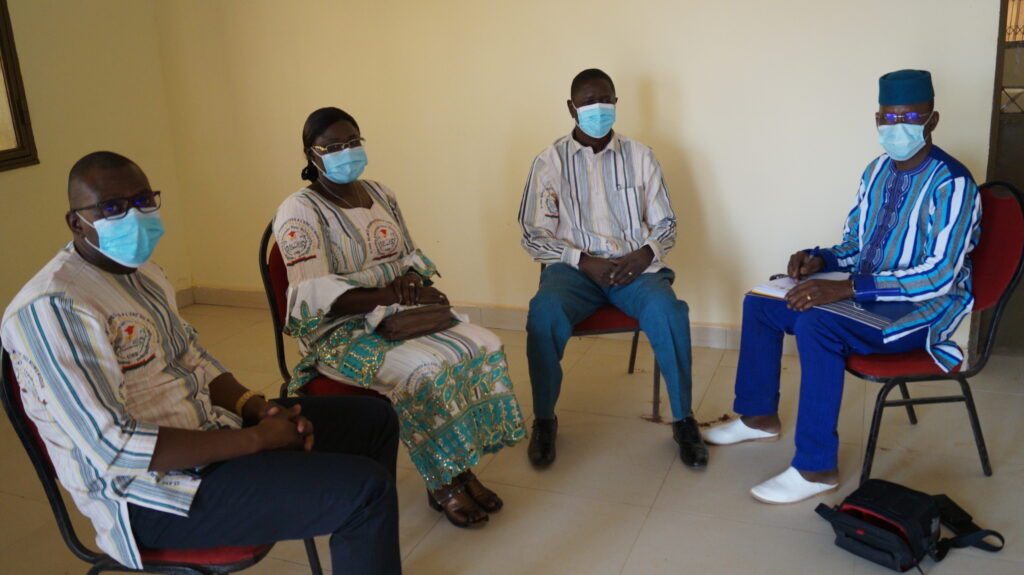
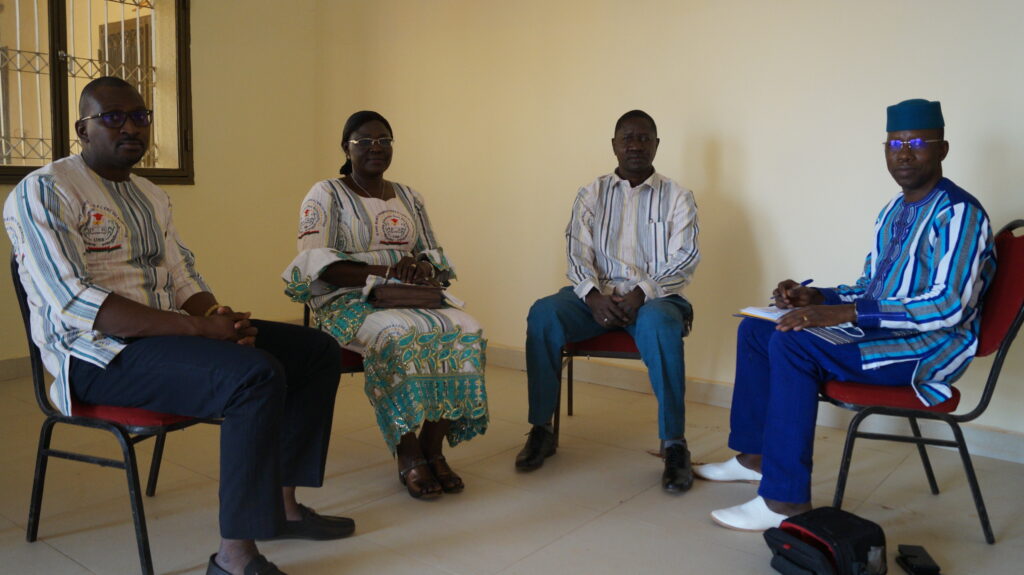
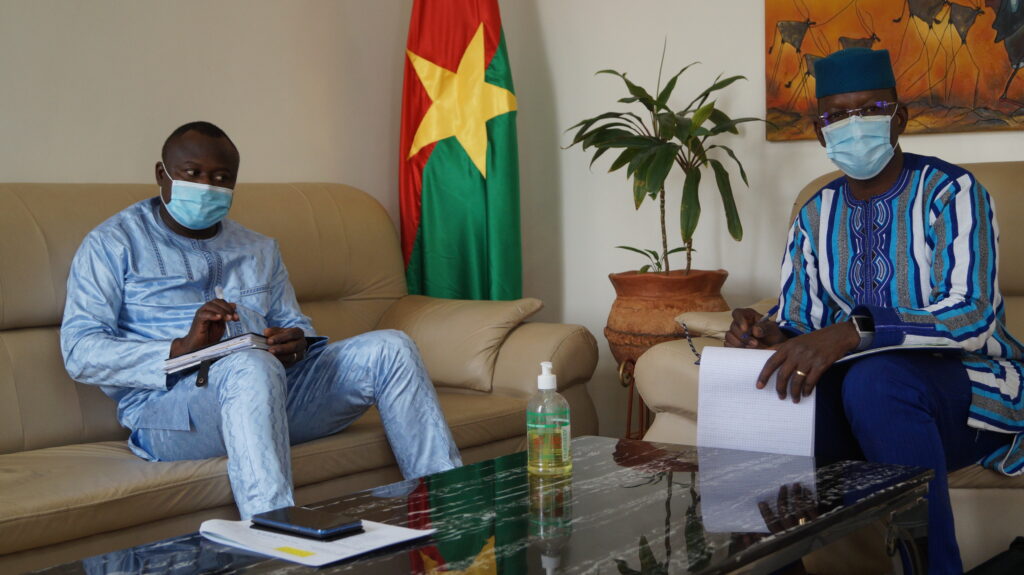
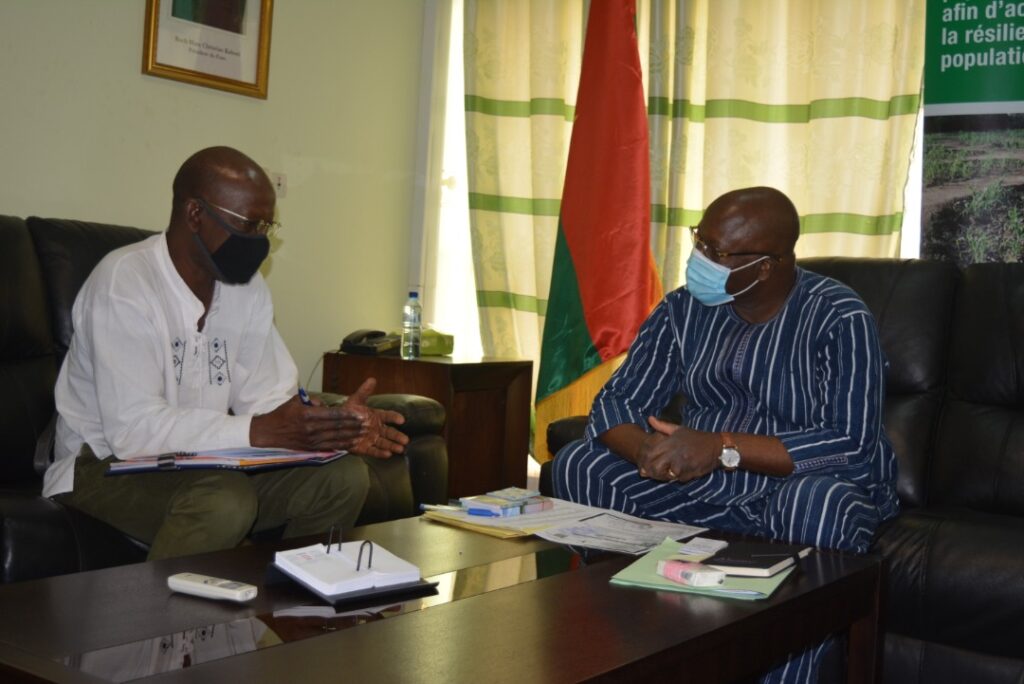
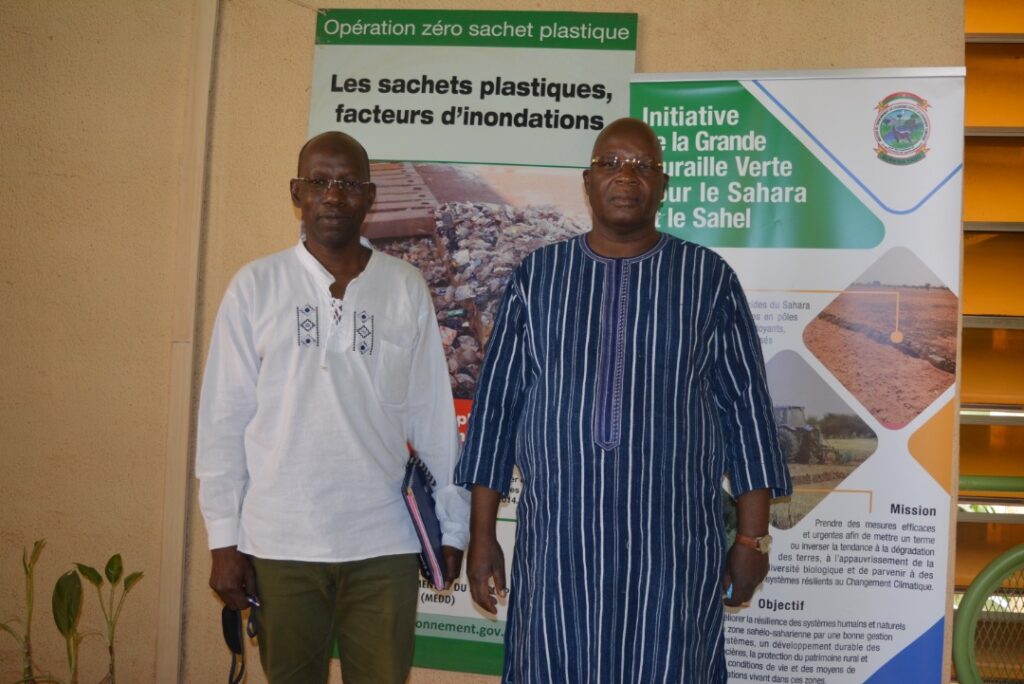
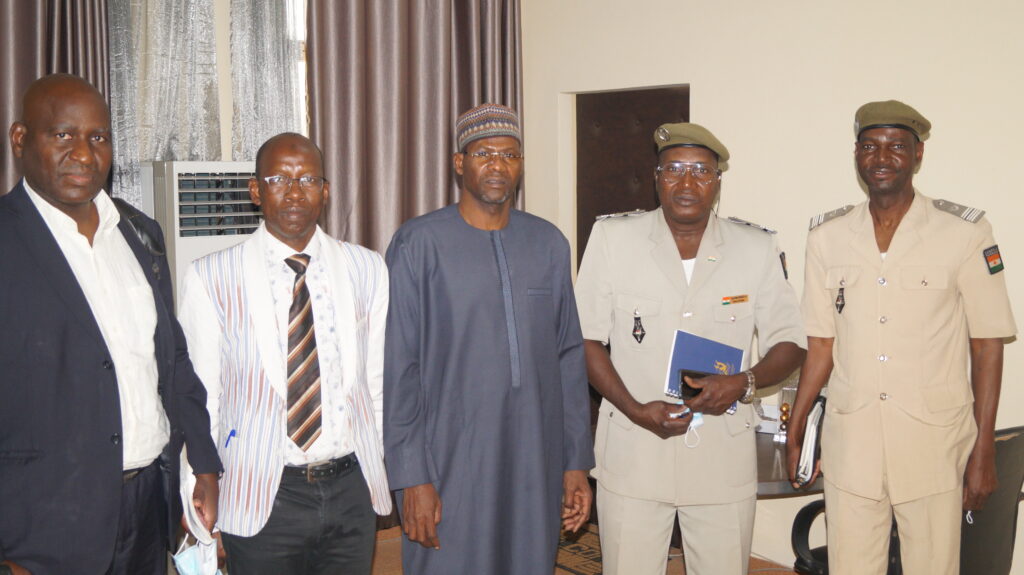



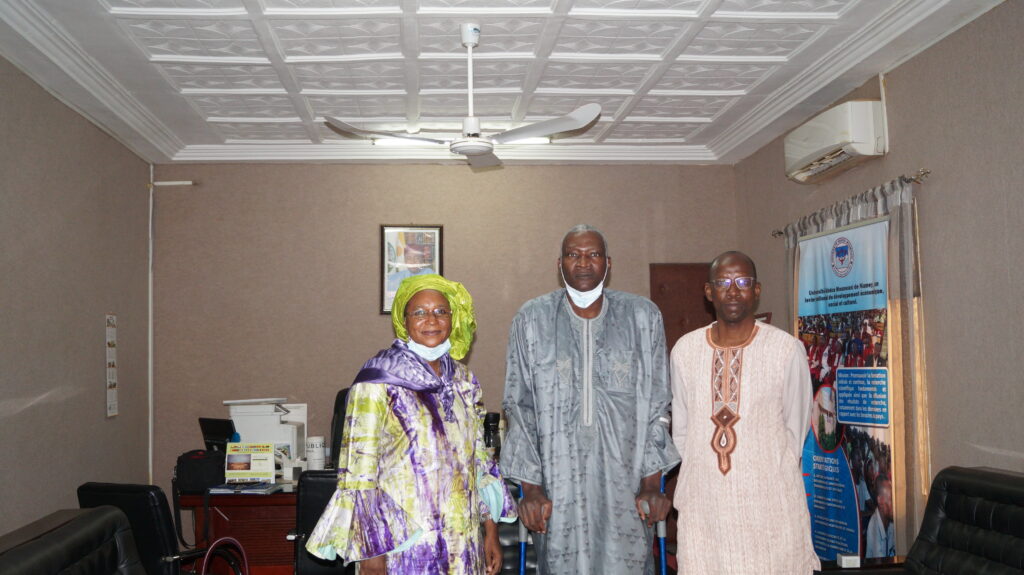
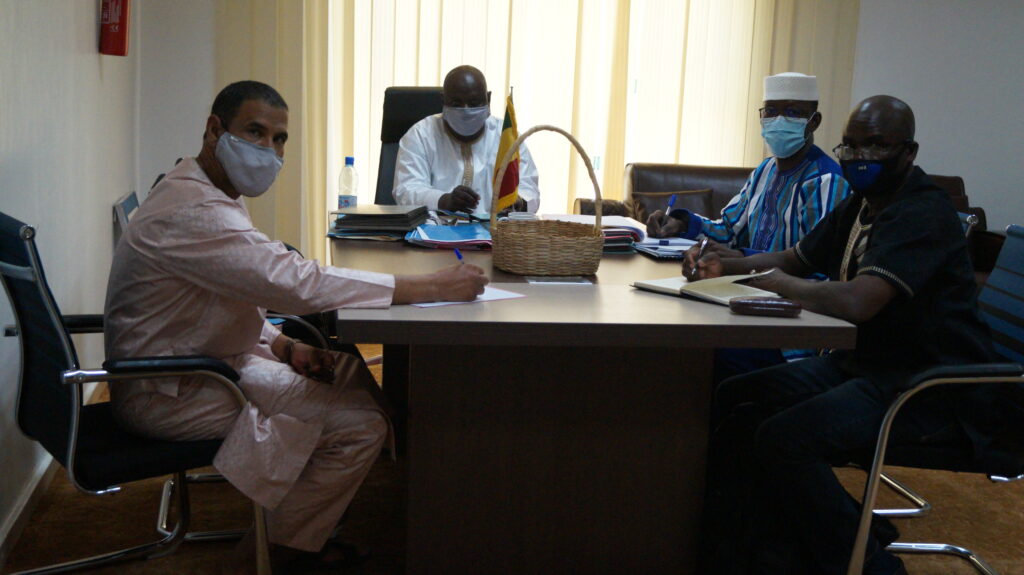
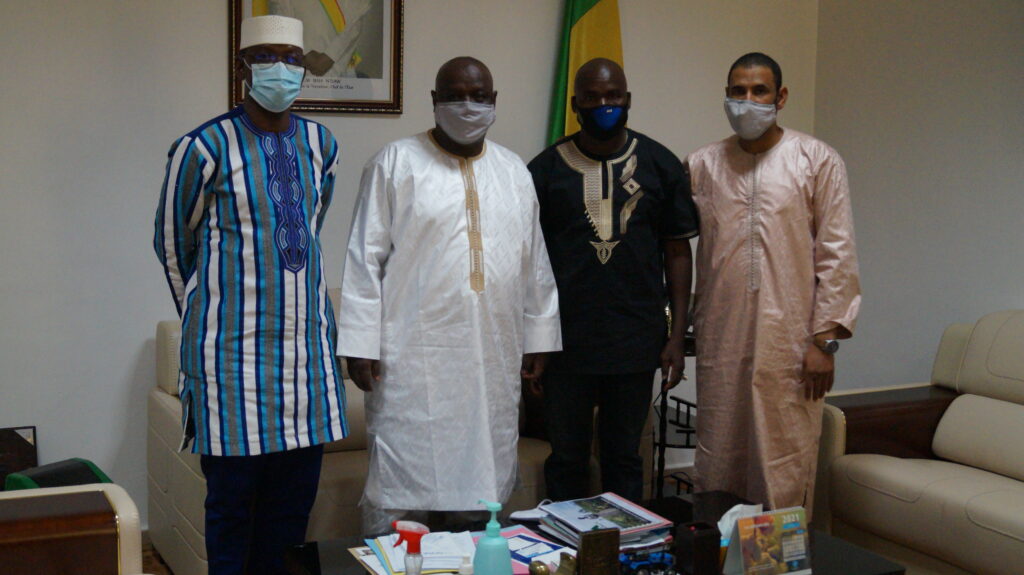
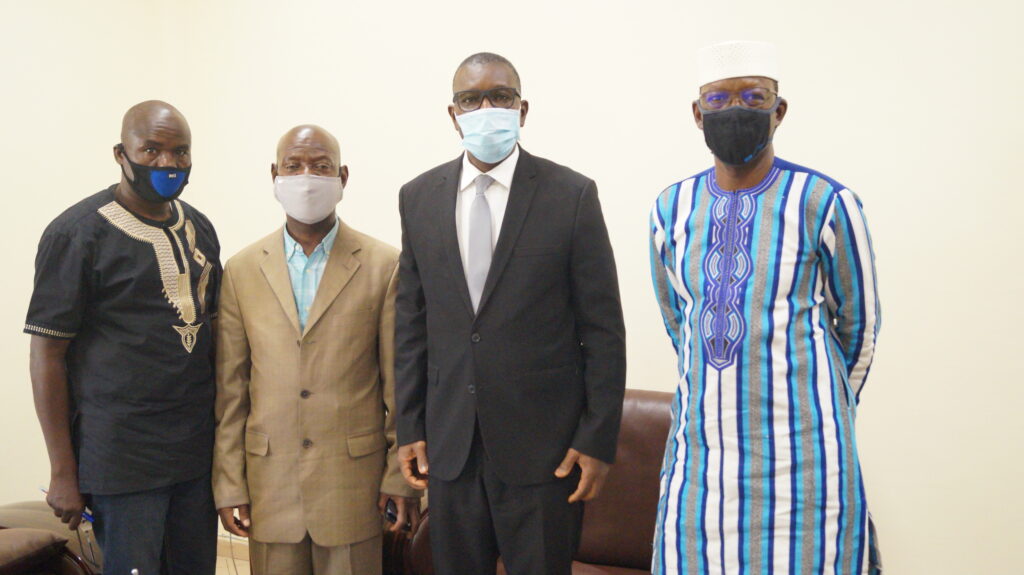
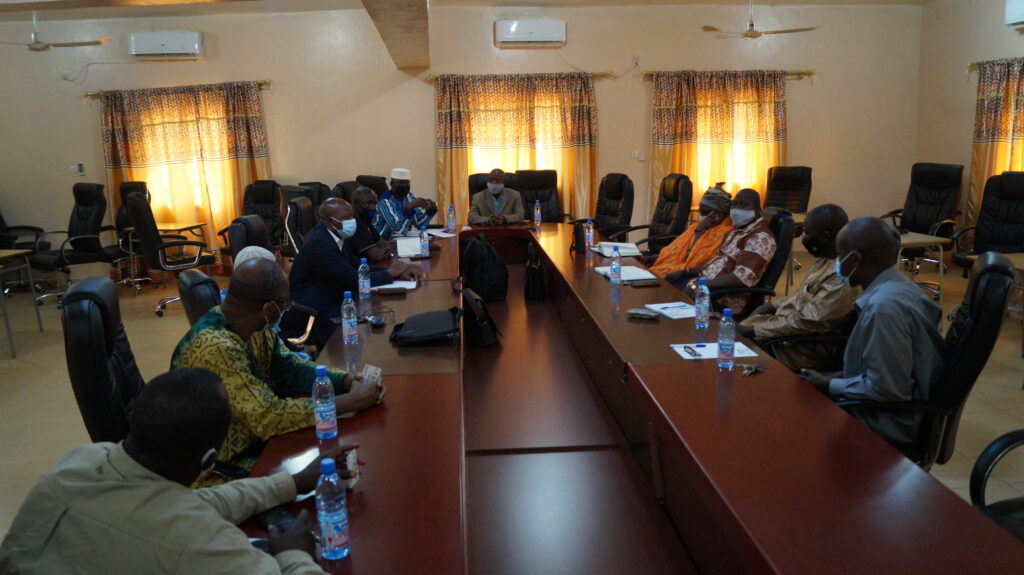

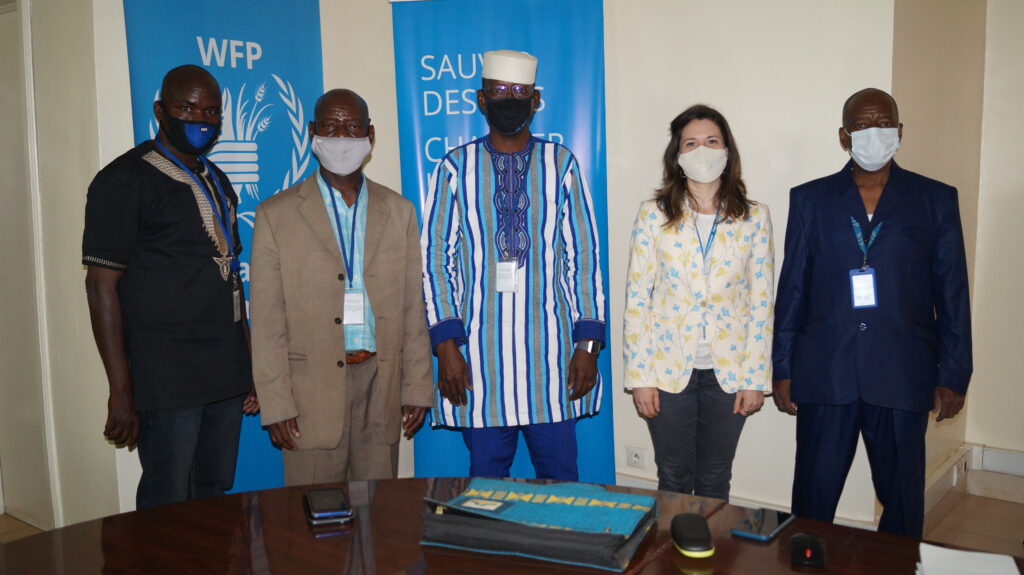
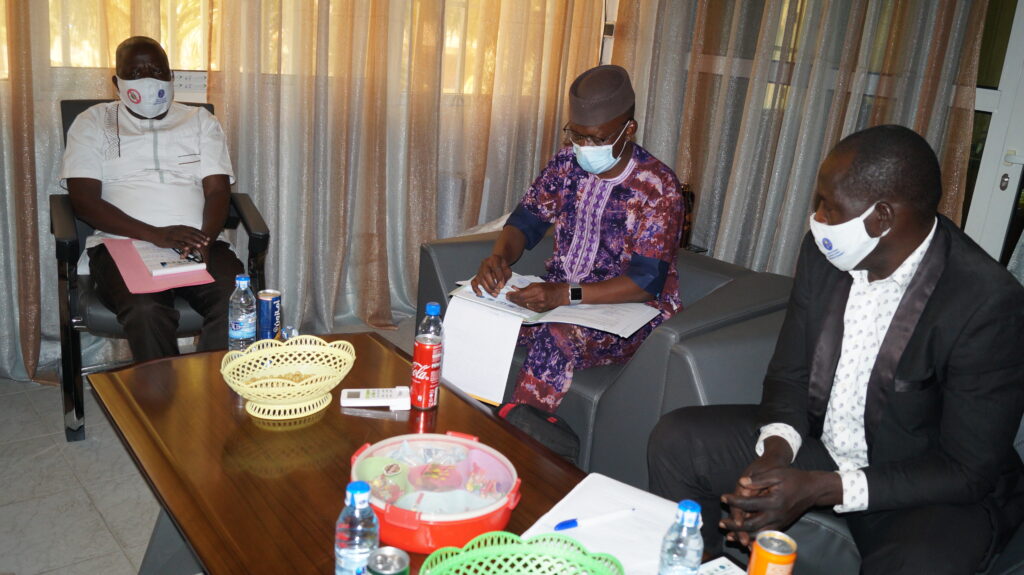
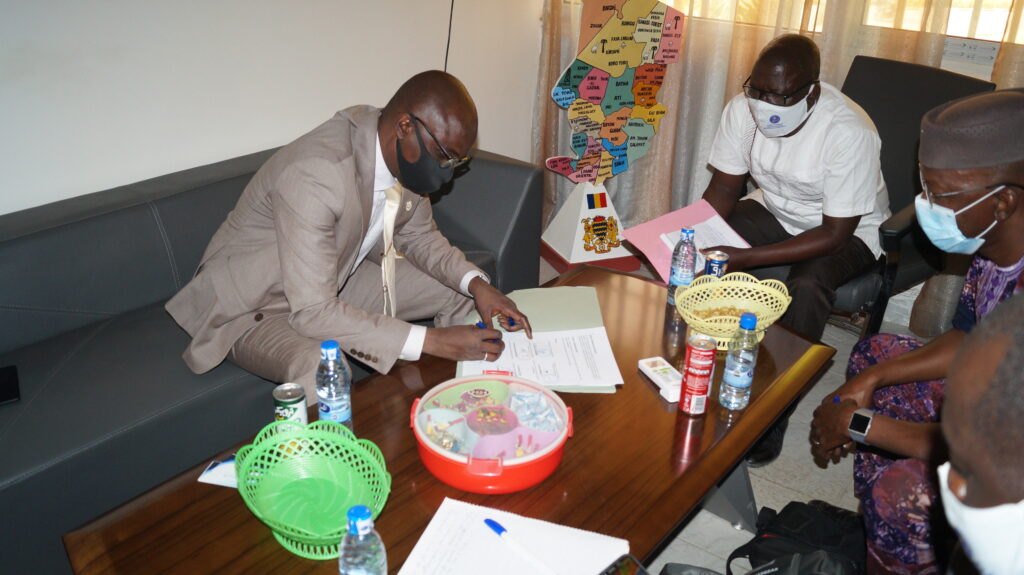
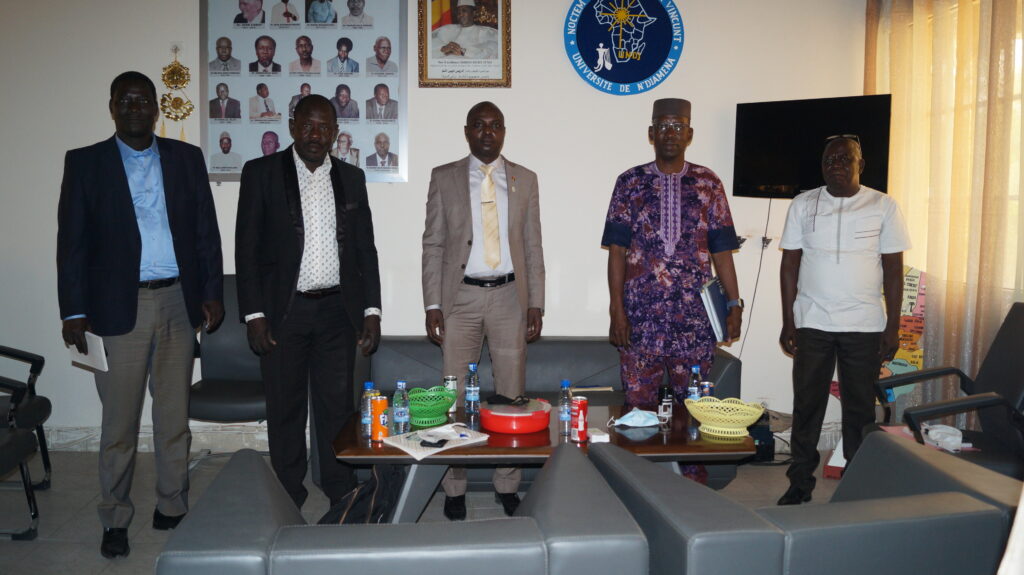
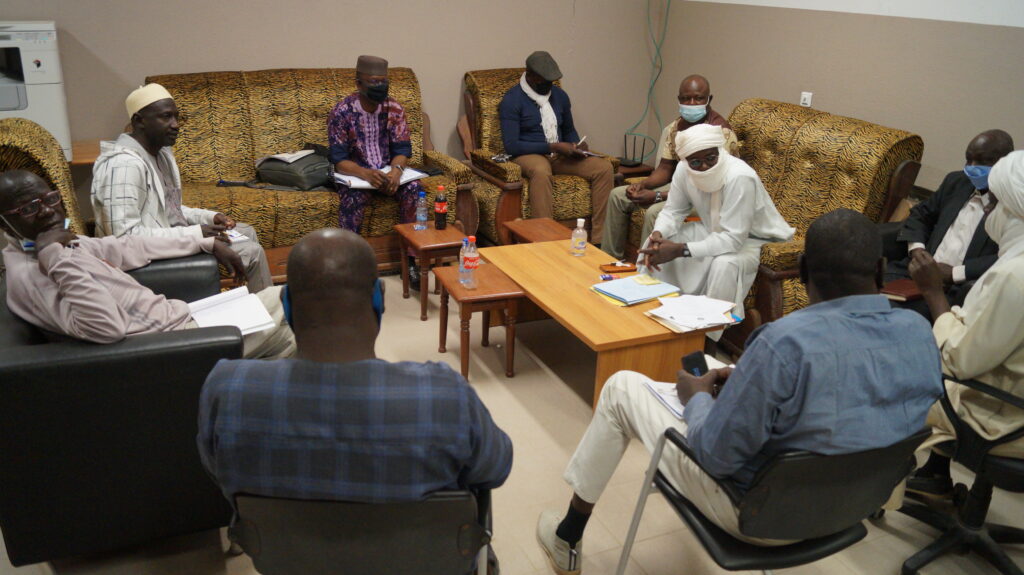
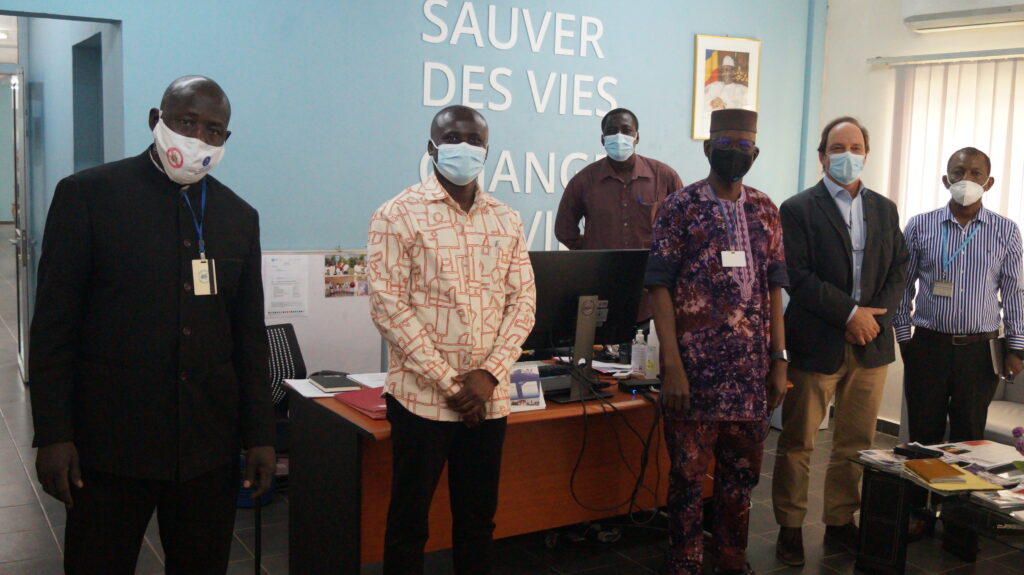
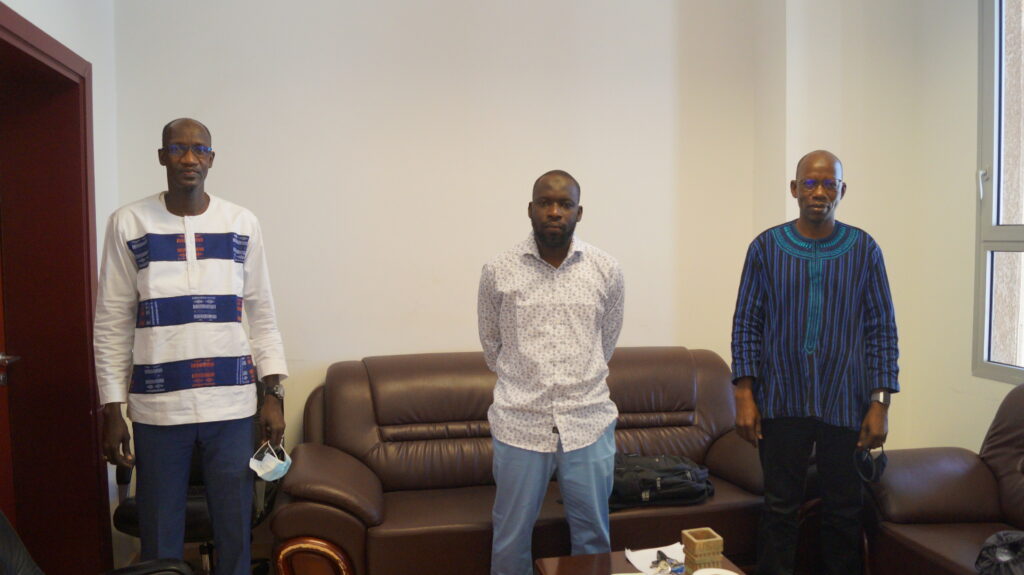
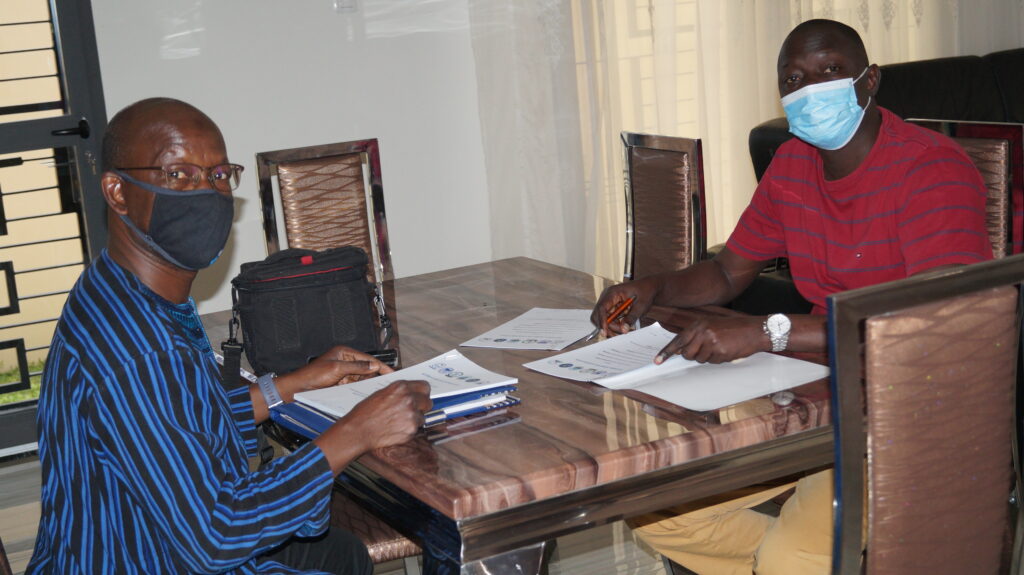
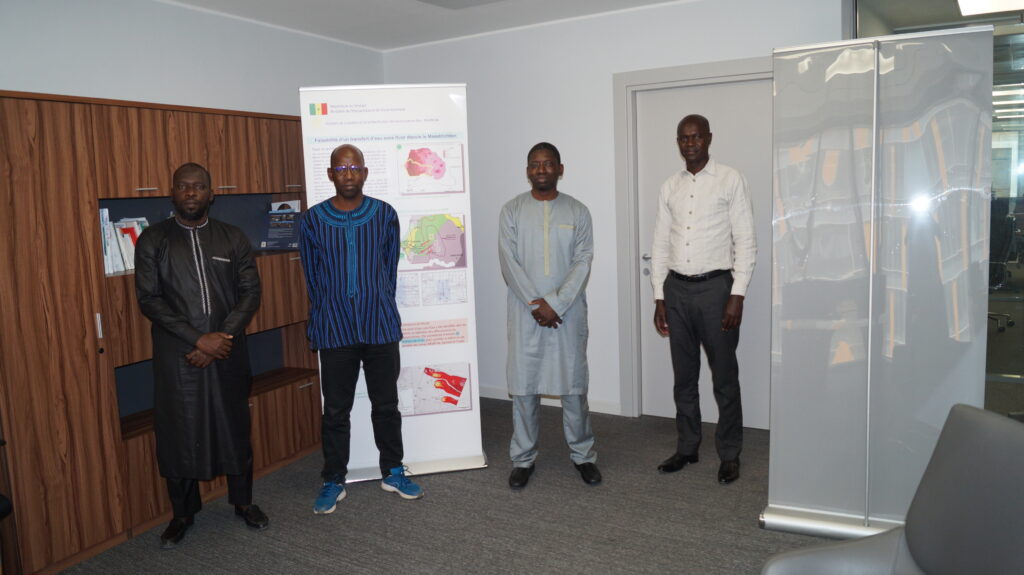
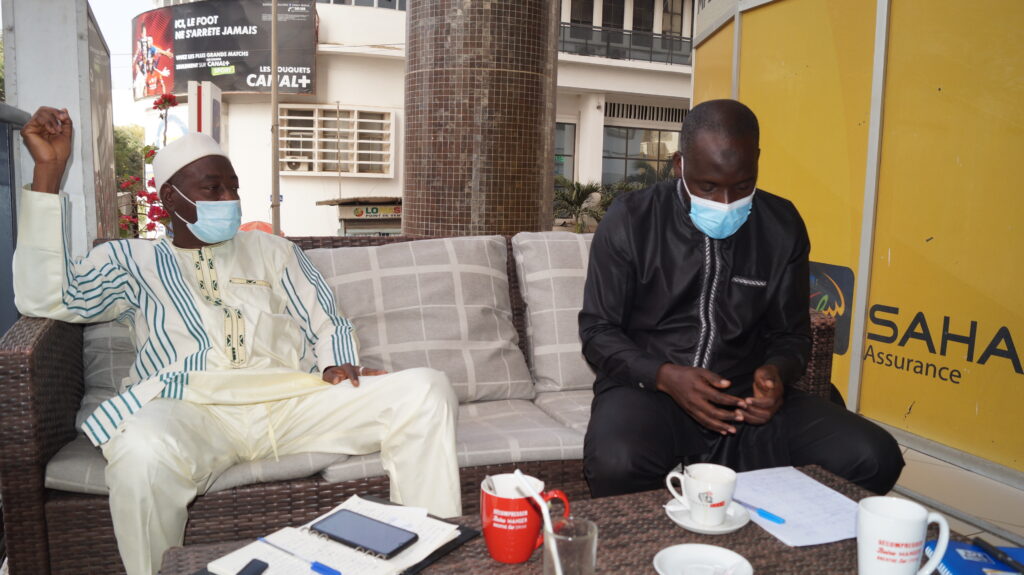
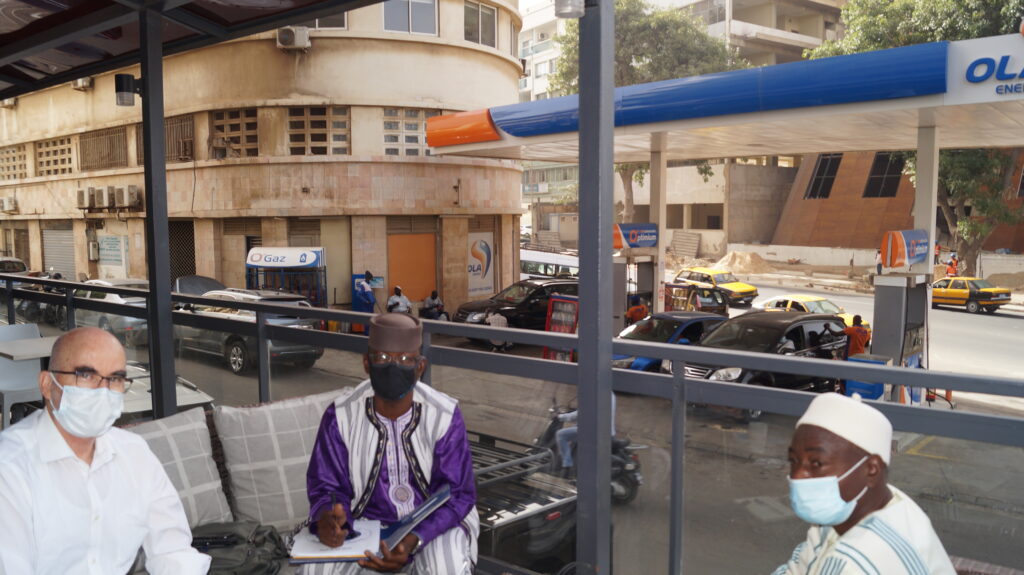
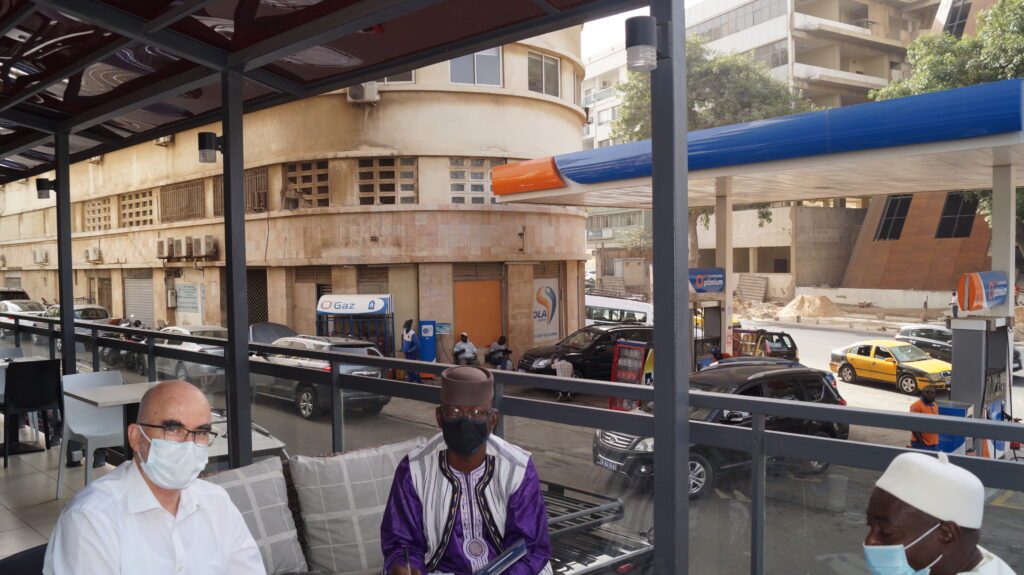
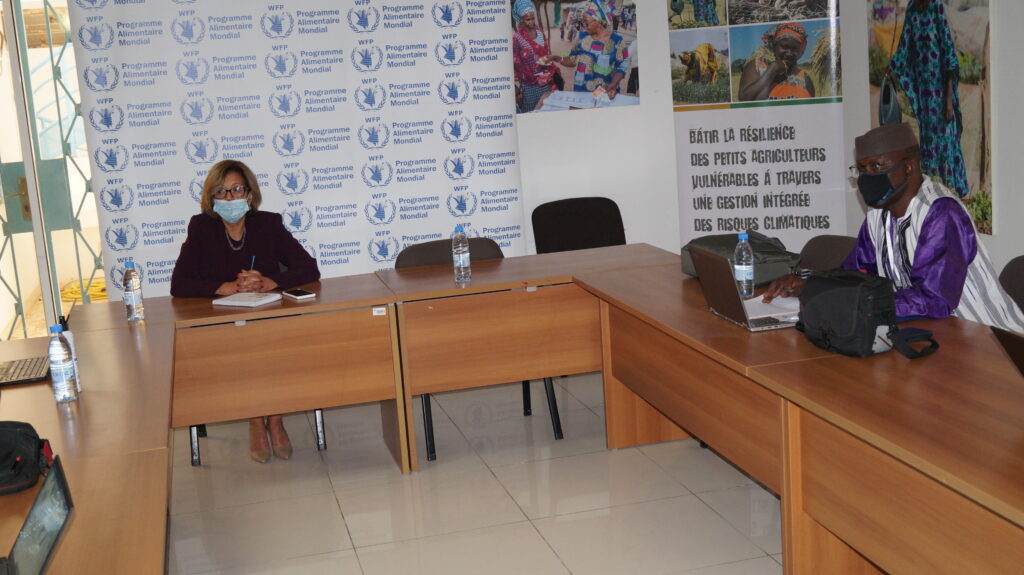
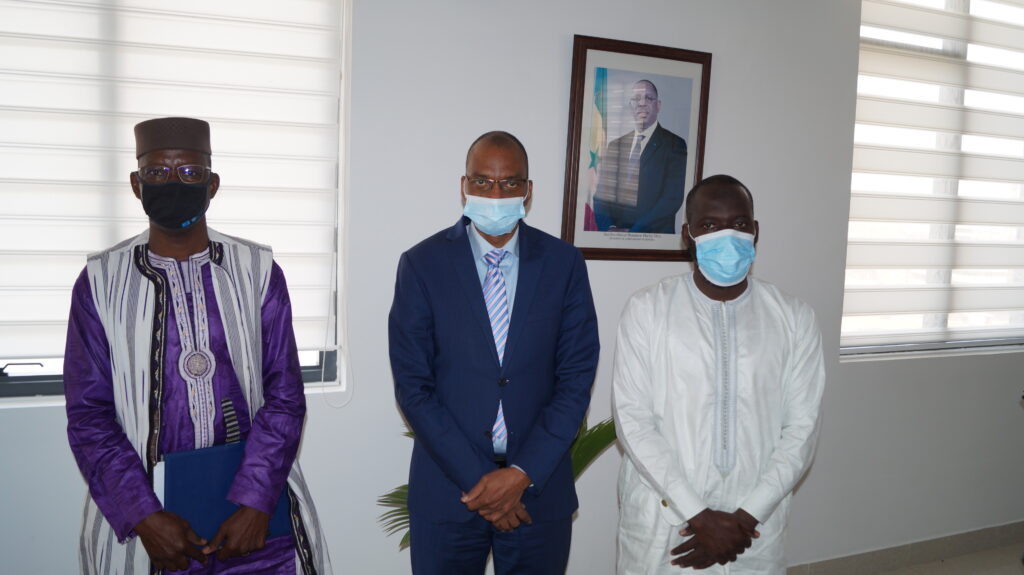
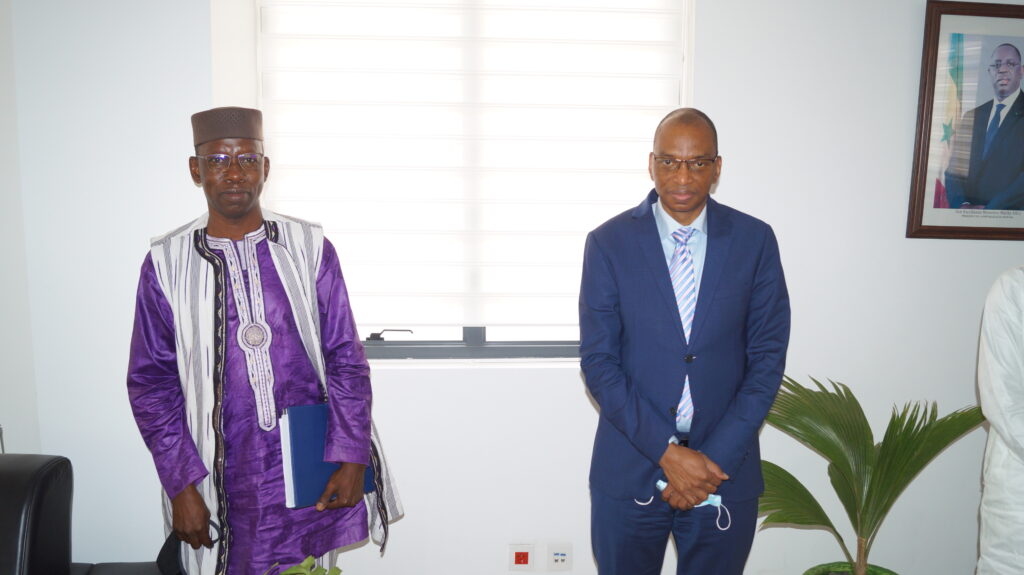
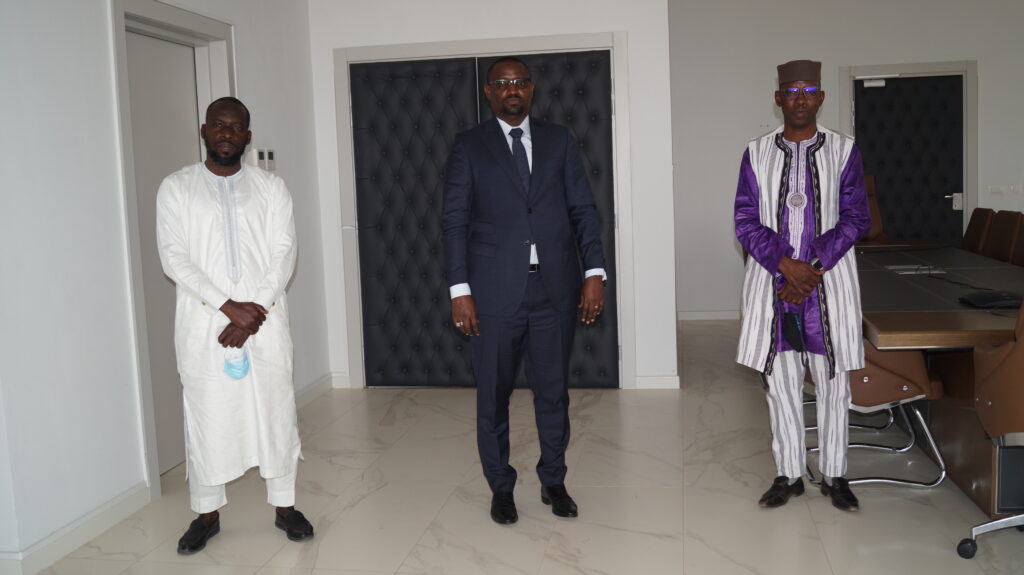
The Sahel is the region of West Africa that recurrently faces problems of food and nutritional insecurity, degradation of natural resources and climate change. The Sahel is also a region of Africa that has experienced the greatest increase in hunger over the past decade. Despite the continued efforts of governments and partners to combat food insecurity and malnutrition in the Sahel, it is estimated that 29.2 million people are estimated to be food insecure, including 9.4 million suffering from severe food insecurity and at risk of extreme food deficits.
Aware that deep and lasting transformations cannot be achieved by one entity alone, WFP has initiated strategic partnerships under a global, multi-sector and multi-actor approach, necessary to support communities facing multiple risks and vulnerabilities. It is therefore in the spirit of capitalizing on solid partnerships with a view to achieving the objectives of each party on the issue of resilience in the Sahel, that the WFP, through the Dakar Regional Office, has approached universities in 5 Sahel countries, to bring about a change in the approach and operationalization of resilience interventions in the region. This partnership, initiated seven years ago, and the multiple discussions on issues related to community resilience, as well as the possibilities for collaboration between universities in the region, led to the creation in January 2020 of a Network of Sahel Universities for Resilience (REUNIR) which currently brings together six universities: Abdou Moumouni University of Niamey (Niger), Dan Dicko Dankoulodo University of Maradi (Niger), Nazi Boni University of Bobo Dioulasso (Burkina Faso), the University of N'Djamena (Chad), the Gaston Berger University of Saint-Louis (Senegal) and the Rural Polytechnic Institute (IPR) of Koulikouro (Mali).
The REUNIR network offers a unique opportunity to facilitate cooperation and knowledge sharing on building resilience for food and nutrition security in the Sahel, to advance the institutionalization of resilience tools and to contribute to the formation of the next generation of resilience experts. The REUNIR network has the main objectives of:
The creation of the REUNIR network offers a unique opportunity to facilitate cooperation and sharing knowledge on building resilience for food and nutrition security across the region
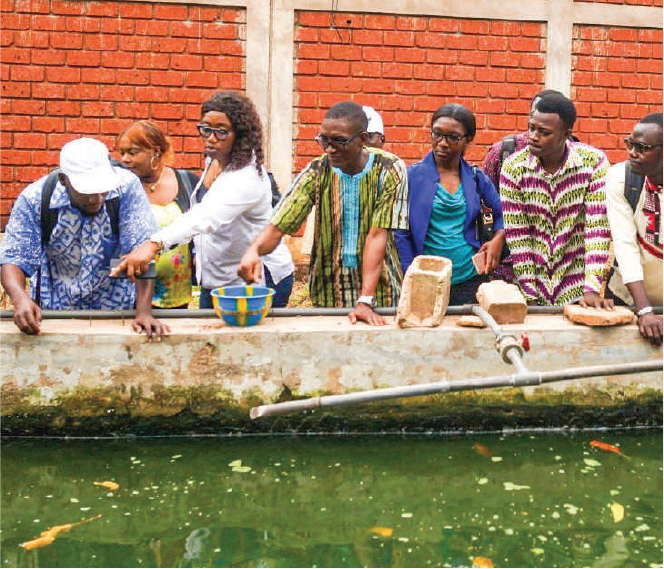
In 2018, WFP worked in close coordination with governments and partners to implement its integrated resilience program in the G5 Sahel countries (Burkina Faso, Chad, Mali, Mauritania and Niger), through multiple integrated activities , combining asset creation, school feeding, nutrition, community capacity building and support during lean times. In practice, it involves bringing life and productivity potential back to degraded land, bringing children back to school,
invest in healthy diets for mothers and children, create jobs for young people and strengthen social cohesion in entire communities. PAM's support for the REUNIR network aims to enable it to grow sustainably, achieve its objectives and achieve its medium-term priorities, including: opening the network to other universities in the Sahel; strengthen the mobility of students and teachers within REUNIR member countries; or even set up continuing training for staff of decentralized services of technical ministries assigned to the field.
As part of this partnership with member universities of the network, workshops and field visits are organized in order to capitalize on and share different experiences in terms of resilience, to create not only an environment favorable to a better understanding of resilience. "Resilience" approach but also to support its strengthening in a sustainable, coherent and strategic manner at the level of Sahel countries and university institutions, partners of the WFP. WFP remains a key partner for the REUNIR network, with which it has developed three main areas of collaboration:
